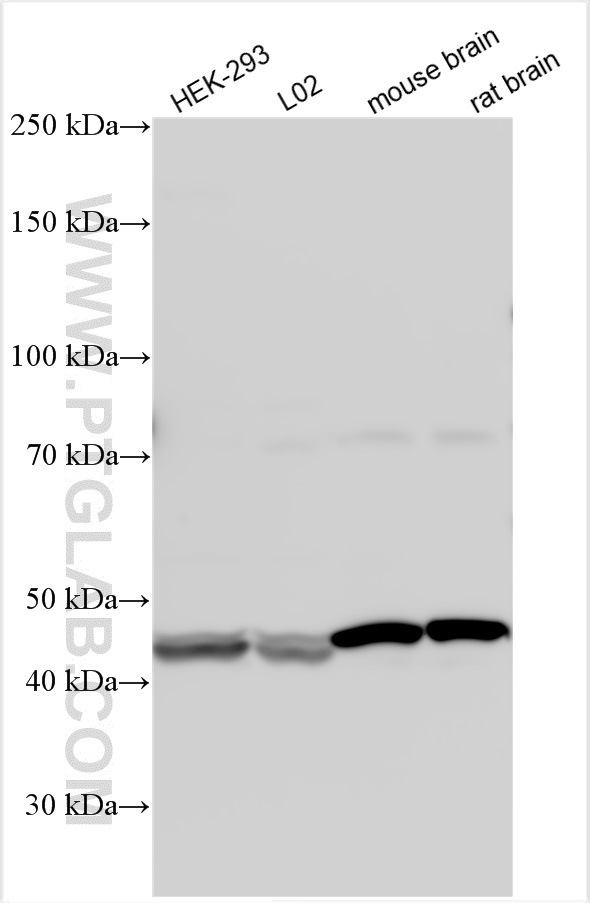验证数据展示
经过测试的应用
| Positive WB detected in | HEK-293 cells, L02 cells, mouse brain tissue, rat brain tissue |
推荐稀释比
| 应用 | 推荐稀释比 |
|---|---|
| Western Blot (WB) | WB : 1:500-1:1000 |
| It is recommended that this reagent should be titrated in each testing system to obtain optimal results. | |
| Sample-dependent, Check data in validation data gallery. | |
产品信息
19160-1-AP targets TLL1 in WB, ELISA applications and shows reactivity with human, mouse, rat samples.
| 经测试应用 | WB, ELISA Application Description |
| 经测试反应性 | human, mouse, rat |
| 免疫原 | TLL1 fusion protein Ag13639 种属同源性预测 |
| 宿主/亚型 | Rabbit / IgG |
| 抗体类别 | Polyclonal |
| 产品类型 | Antibody |
| 全称 | tolloid-like 1 |
| 别名 | TLL, TLL1, tolloid like 1, Tolloid like protein 1 |
| 计算分子量 | 115 kDa |
| 观测分子量 | 42-44 kDa |
| GenBank蛋白编号 | BC016922 |
| 基因名称 | TLL1 |
| Gene ID (NCBI) | 7092 |
| RRID | AB_3085574 |
| 偶联类型 | Unconjugated |
| 形式 | Liquid |
| 纯化方式 | Antigen affinity purification |
| UNIPROT ID | O43897 |
| 储存缓冲液 | PBS with 0.02% sodium azide and 50% glycerol , pH 7.3 |
| 储存条件 | Store at -20°C. Stable for one year after shipment. Aliquoting is unnecessary for -20oC storage. |
背景介绍
TLL1 (Tolloid Like 1) is a Protein Coding gene. This gene encodes an astacin-like, zinc-dependent, metalloprotease that belongs to the peptidase M12A family. Diseases associated with TLL1 include Atrial Septal Defect 6 and Atrial Septal Defect, Ostium Primum Type. Among its related pathways are Collagen chain trimerization and Extracellular matrix organization. An important paralog of this gene is TLL2. TLL1 has 2 isoforms with the molecular mass of 115 and 44 kDa.
实验方案
| Product Specific Protocols | |
|---|---|
| WB protocol for TLL1 antibody 19160-1-AP | Download protocol |
| Standard Protocols | |
|---|---|
| Click here to view our Standard Protocols |
